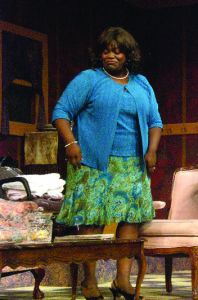Jenna LoMenzo, previous model for New York Fashion Week, explains body image in fashion industry
The fast paced and judgmental world of fashion, or any media outlet, can sway an adult’s opinion of their body image. Imagine being in that world as a child and how that can become the only identity that you ever knew.
From a child commercial actress to working fashion week in New York with various photographers, Jenna LoMenzo, sophomore education major, began working for a modeling agency at a young age. Through her modeling career, LoMenzo began becoming very self-conscious about her body and developed an eating disorder.
At the age of 13, LoMenzo was asked to move to Los Angeles, Ca. to model professionally. She chose not to move because she knew her past struggles with eating disorders and body image issues would reoccur if she continued working in that industry.
“I did struggle with eating disorders every once in a while less serious than others, and it is something that really is hard to avoid in this industry. Instead of falling into this pressure and world, I stopped,” LoMenzo said.
Poor body image, increasing eating disorders and the need to look like models on television are increasing in today’s society.
Eight million women worldwide suffer from body image disorders, according to the National Eating Disorders Association. The media, television, fashion and film have a lot to do with the portrayal of poor body image in many young girls and women to National Eating Disorders Association.
“Media portrays a false image, unrealistic image, of what women’s bodies should look like but within media there is a counter culture and other different kinds of media that portray different more realistic images,” Dr. Michelle Filling, assistant professor of English, said in a body image documentary conducted by Felicia Melvin, senior communicaton major.
Theresa Agro, junior education major, has been dancing since the age of 5 and has auditioned for the Philadelphia Eagles Cheerleaders, Sixers Dance Team, and Philadelphia Soulmates.
“You can be a beautiful dancer and not be thin. But in the professional dance world there is a lot of pressure to be thin and perfect. Especially the outfits many of the dance team wears which puts pressure on you to fit how they want you to look,” Agro said.
The Dove Campaign for Real Beauty highlights the need for women to stray away from ideas of Photoshop and show their real beauty.
The campaign has commenced an open dialogue globally for a need for better body images in women and a new description of beauty, which is a continuation of the previous campaign started a number of years ago.
To this day, LoMenzo worries about her body image. Coming from a real modeling backgrounds she grew up in a lifestyle where watching your weight was more important than anything else.
“Imagine walking into auditions or a room being told you can’t do the photo shoot unless you drop like, 10 pounds at 115 already, or being told get a nose job to fix your bump, or hide your ears,” LoMenzo said.
In early March, Yahoo published an article titled “Supermodels without Photoshop,” which publicized Photoshop and airbrush that showed what three celebrity models looked like behind the makeup and Photoshop.
“It is about being tall, skinny and then also to get to this point girls have to have eating disorders, take diet pills, resort to eating nothing. Society views this as beautiful in the fashion industry and in the media so much that it is such a negative and untrue portrayal of beautiful women,” LoMenzo said.
Nicole Dele, junior theater major at Lindenwood University, experiences firsthand the harsh realities of society’s rough hand toward actresses and the need to be thin in today’s society. Dele has been in over 30 productions and appeared in a commercial a year ago.
“It is portrayed as if I am not completely beautiful until I am size 8. They may see me as beautiful, but I may get a comment like ‘you would be so much prettier if you were skinnier’,” Dele said.
Dele believes the theater and film industry has grown a lot from what it used to be but there is still a stigma that to be beautiful you need to be skinny. Dele worries a great deal about her weight when going on casting calls for stage acting.
“Big girls, like myself, get more work as a mother or older figure. At times that may not be what I want but that’s how they would see me,” Dele said.
“My real hopes one day is for modeling to be more open and put girls with curves and unique bodies on covers of magazines, and to help girls not have to take drastic measures to be beautiful, it isn’t necessary,” LoMenzo said.





